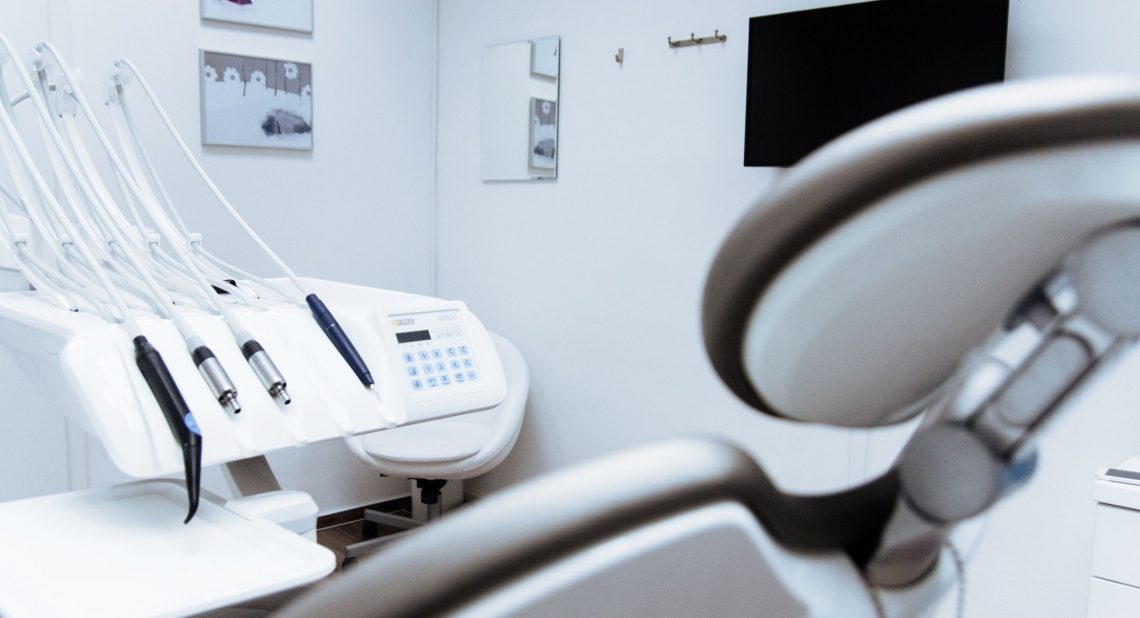As a dentist, you might do all you can to ensure your patients have a great experience every time they visit you for treatment. However, pleasing everybody isn’t easy.
You’re bound to receive negative feedback and dental complaints from patients who probably weren’t satisfied with their treatment. These patients might escalate the issue by writing a negative review of your practice, which could harm your online reputation.
But the good news is such complaints about dentists are preventable. In this article, we’ve covered the most common dental complaints that patients make and how you can resolve them.
Table of contents

5 types of dental complaints and how to solve them
When it comes to dental care, patients may encounter obstacles to receiving the service they want. When this happens, they will voice various complaints or concerns. These issues can range from pain and discomfort during procedures to dissatisfaction with the results of a treatment or frustration with the front office staff. Regardless of the issue, these patient complaints can harm your dental reputation.
Here are five common types of dental complaints and our tips to help resolve or prevent them.
Dental complaint 1: The treatment was too expensive
Cost is a significant concern for many individuals seeking dental care. Dental treatments can be expensive, making accessing the necessary care challenging for some patients. Especially if the patients don’t have dental insurance, the costs can even shock them.
What’s more, this is not a case where your patients will suffer in silence. Many patients visit dentist review sites to complain about the high cost of treatment at dental clinics.
Patients experiencing “sticker shock” may feel betrayed or overwhelmed, especially if they have been informed a treatment is necessary.

How can dental practices resolve cost complaints?
Start by explaining the cost of treatment in detail prior to beginning any procedure. This builds patient confidence and trust.
By providing detailed breakdowns of pricing, along with potential alternative options, you empower your patients to make informed decisions. This openness also minimizes the likelihood of price-related complaints, even when the costs are higher than expected.
Consider the following scenario:
A patient is visiting your practice for a tooth filling, but you find considerable tooth decay. No one is happy to hear they’re suffering tooth decay, and the patient worriedly asks about the cost and if it’s necessary. Because of this, you’ll have to carry out an additional procedure.
Explain the additional cost and the benefit to the patient before you begin the procedure. Be certain to ensure the patient understands and consents to any new treatments with the full knowledge of their cost.
Dental complaint 2: Long wait time
Patients come to your practice for their appointments, no matter how well-decorated your waiting area is and how delightful your fish are. Understandably, they won’t be pleased if they wait too long. If the wait is beyond a few minutes, they may even go on to write a negative review.
Often, the cause of these wait-time-related complaints is that customers’ expectations are not being met rather than the objective length of the wait.
How dental practices can resolve wait time complaints
You might be a well respected dentist in your neighborhood who attends to several patients every day. Since the time spent treating each patient can vary, some patients might have to wait. While some waiting is to be expected, you can mitigate most complaints about longer wait times with a few easy steps. These are::
- Ask your front desk team to schedule appointments so that you get enough buffer time between patients in case a treatment takes more time than expected. ‘
- Proactively inform all your patients that their appointment time is tentative and can vary slightly.
- Use a messaging app or service to provide live updates to customers on expected wait times and to communicate with customers on wait lists.
Dental complaint 3: Lack of information

Another common patient complaint is that dentists don’t provide enough information or explanations about oral health conditions and treatment options. Feeling uninformed can lead to confusion and uncertainty.
As a dentist, you might be doing everything you can to ensure that your patient’s treatment goes as planned. However, it might happen that the treatment fails because of inadequate post-treatment care or any other reason that isn’t in your control. After all, how often do they floss? We all know the answer.
How to prevent lack of information complaints before they happen
Consider a patient coming in for a crown. In this scenario, you discover that the tooth in question has a crack and that the patient grinds their teeth. This potentially indicates a future full break of the tooth.
If you explain to the patient that they may need to have the tooth pulled or have a veneer placed, they might become confused and alarmed unless you provide a comprehensive explanation for the revised treatment recommendation.
To overcome lack of information complaints, consider the following solutions:
- Discuss the treatment plan with them in detail and explain all possible consequences.
- Provide other options about what could be done for their particular teeth
- Inform your patients of all post-treatment care instructions, including a breakdown of the potential risks of non-compliance.
- Ensure that they have information on when they need a future appointment, potential future costs, and care of their teeth.
Dental complaint 4: Not actively listening to the patient’s issues
There is a knowledge gap between dentists and their patients.
While you may be able to understand any given problem by just listening to a few symptoms of the patient, they don’t know what information is relevant. Take the time to listen to them anyway. Even if your dental tech has suction in their mouth, appearing attentive can make a huge difference in patient perceptions of the care you provide. On the flip side, if you don’t listen to your patient completely, they’ll feel that you don’t truly care about their health.
How to resolve complaints regarding a lack of listening
Although you might have understood the underlying problem by looking at your patient’s teeth and knowing the best treatment, this is your patient’s mouth. They will be concerned about what happens in their own mouth, and may have additional questions or information. Whether that information is superfluous or not is immaterial. Here are a few specific tips
- Listen to your patient calmly, allowing them to share their concerns and then suggest a procedure. This way, your patients will believe you’ve understood them correctly.
- Highlight all the benefits and risks associated with the treatment they’ll undergo, giving specific mention of any risks they mentioned themselves.
- Openly communicate and understand their fears and anxieties and provide any additional support they might need.
- Provide comfortable options for patients during procedures to demonstrate that you care about how they feel.
Dental complaint 5: Inappropriate behavior
Unfortunately, too many patient reviews describe inappropriate behavior from practioners, front desk staff, and the rest of the dental team. As professionals, you likely treat all of your patients properly, even if they come in angry or hurting. Patients expect politeness, regardless of how they treat you.
Unprofessional behavior in response to poor patient behavior will likely result in a negative review, even if the patient initiated the conflict.

How to resolve complaints of inappropriate behavior
You and your staff work with patients of all kinds every day. Because of this, it’s easy to become complacent. When that happens, your staff may become impatient with their customers.
Read more: Improve feedback and reviews for your dental practice
Handle such situations professionally. Ensure the staff member acknowledges their behavior and takes steps to improve their interaction. Next, assess whether the patient poses any threat to the safety of the office.
Assuming they are not a threat to the office and your staff member has a chance to cool off, the situation can still be salvaged.
If patient concerns are addressed appropriately, they might even write a positive review for your practice online.
Did you know: Over 90% of dental patients check online reviews of dentists before they book an appointment? It is important for dentists to manage their online reputation by offering the best experience to their patients.

Frequently asked questions about dental complaints
Based on the complaint’s seriousness, patients can file dental complaints with either the management of the dental clinic, the dentist, or the state/national Dental Association Board.
Some common complaints of dental visits are:
-Long waiting times
-Price of the service
-Lack of information on what to expect
-Behavior of the staff or the dentist
-Fear and anxiety from the patients
Patients can file a complaint with the Dental Board by calling them at (916) 263-2300 or using their website’s online complaint forum.
If a patient is unhappy with your dental treatment, they will often find that reaching out to your office or the clinic’s management to understand the best solution. If they are unhappy, they may escalate the complaint to the State Dental Board.
Let Birdeye help you manage your reviews easily
Although you can reduce negative reviews, you cannot avoid them completely. If you’ve received negative feedback about your dental practice online, here’s how to convert it into an opportunity to get more patients to your practice.
Boost review volume, gain valuable consumer feedback insights, and leverage positive reviews in your marketing with Birdeye Reviews AI.
More reviews
Better reputation
Want to see the impact of Birdeye Reviews AI on your practice? Watch our Free Demo Now.
Originally published









